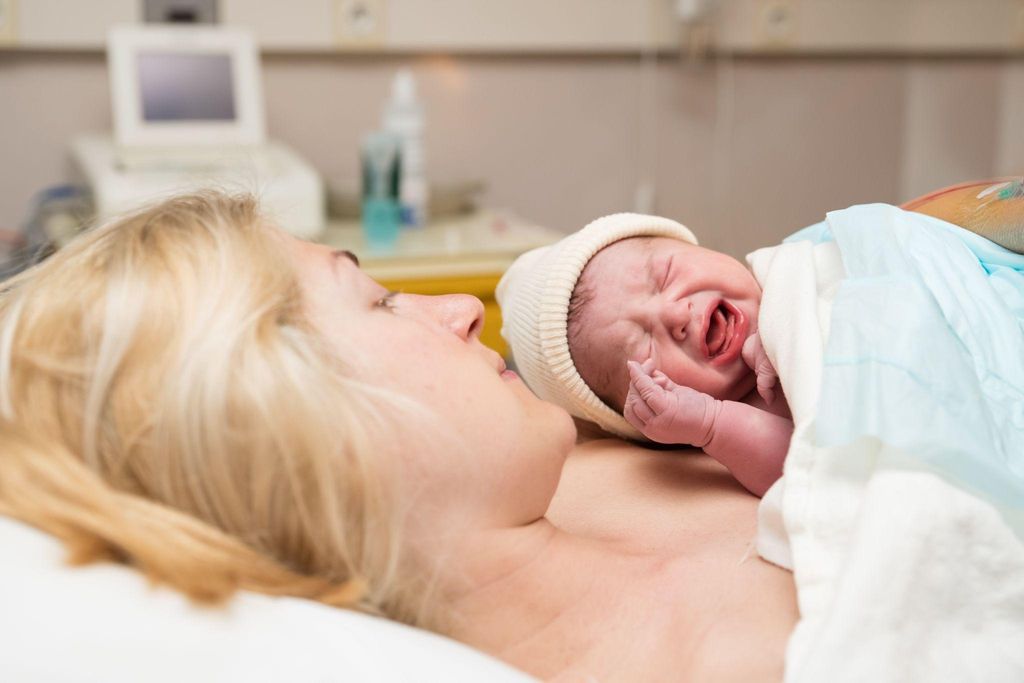Introduction: The Journey of Postpartum Care
The arrival of a new baby is a momentous occasion, filled with joy, excitement, and anticipation. However, the weeks and months that follow the birth can be both physically and emotionally demanding. While much of the attention is often focused on caring for the newborn, it’s equally important for new mums to focus on their own recovery and well-being. Postpartum care encompasses a variety of physical, emotional, and mental aspects of recovery, and is essential for ensuring that new mothers are able to heal and adjust to their new life.
Many women rely on antenatal care during pregnancy to help prepare for childbirth, but often there is less awareness of the importance of postpartum care. Whether through antenatal appointments, attending antenatal classes near me, or seeking antenatal support, these resources play a vital role in preparing mothers for the transformative period after childbirth. This guide will take you through the key aspects of postpartum recovery, with practical tips to help new mums take care of both their body and mind.
The Physical Recovery: Restoring Your Body After Birth
1. Vaginal Birth Recovery: What to Expect
If you’ve had a vaginal birth, the recovery process will vary depending on individual factors such as whether you experienced tearing or required an episiotomy. After childbirth, most women will experience vaginal bleeding, known as lochia, which is the body’s way of expelling the uterine lining. This can last from a few weeks to around six weeks, with the bleeding gradually lightening in colour and intensity. Antenatal care helps prepare you for this, as healthcare providers will advise on how to manage this process.
One of the key aspects of vaginal birth recovery is perineal care. You may experience discomfort or swelling in the perineal area, especially if you had stitches or an episiotomy. Proper hygiene and gentle care are essential to prevent infection. Using a peri bottle to rinse the area after using the toilet, and applying ice packs or witch hazel pads, can be helpful in relieving discomfort.
2. C-Section Recovery: Healing After Surgery
If you had a C-section, your recovery will require more time, as this is major abdominal surgery. The incision site should be carefully monitored for any signs of infection, such as increased redness, swelling, or discharge. You will likely feel discomfort and swelling around the incision for a few weeks, and you may find it difficult to move around in the first days after the procedure. Rest is key during this time, and it is important to take it easy and avoid lifting anything heavy.
If you had a C-section, you might want to explore the benefits of antenatal massage once you are given the all-clear from your doctor. This can help alleviate tension in the back and shoulders and improve circulation, which can be especially beneficial for post-C-section recovery. Always speak with your healthcare provider before starting any new treatments.
3. Postpartum Exercise: Rebuilding Strength
After giving birth, it can feel overwhelming to think about returning to your pre-pregnancy shape. However, gentle postpartum exercise is a key component of recovery, as it helps restore your strength and energy levels. Once you’ve received clearance from your healthcare provider—typically after six weeks—it’s safe to begin low-impact exercises such as walking, pelvic floor exercises, and stretching.
Incorporating antenatal yoga into your recovery can be incredibly beneficial. Many women who practiced yoga during pregnancy find that continuing their practice after birth helps with flexibility, posture, and overall relaxation. Antenatal fitness is a great way to regain strength in the body, while also managing stress and improving your emotional well-being. If you’re interested, you can search for yoga for pregnancy classes in your area to find specialised postpartum yoga sessions.
4. Caring for Your Breasts: Addressing Common Postpartum Issues
Breastfeeding can be one of the most challenging aspects of the postpartum period. While it offers incredible benefits for both you and your baby, the initial weeks can come with a learning curve. It’s common to experience sore nipples, engorgement, or even mastitis.
To manage these issues, make sure that you are properly positioned when breastfeeding, and seek assistance from a lactation consultant if needed. Applying a warm compress to your breasts and using nipple cream can also help with discomfort. If you decide not to breastfeed, ensuring that your breasts are emptied regularly will prevent engorgement.
Taking care of your breasts and staying hydrated are vital components of your overall postpartum care. You may also want to consider antenatal support groups, where you can meet other new mums and share advice about breastfeeding challenges and experiences.
Emotional and Mental Well-Being: Adjusting to Motherhood
1. Understanding Postpartum Mood Changes
It’s normal for new mums to experience a range of emotions in the weeks after childbirth. Hormonal fluctuations, sleep deprivation, and the sheer responsibility of caring for a newborn can lead to mood swings, irritability, and even sadness. Many women experience the “baby blues, which typically lasts for about two weeks. During this time, you may feel overwhelmed or tearful, but it usually resolves on its own.
However, for some women, these feelings can develop into postpartum depression (PPD), a more severe condition that requires professional support. Symptoms of PPD may include persistent sadness, feelings of hopelessness, and difficulty bonding with your baby. If you are experiencing these symptoms, it’s important to reach out to your healthcare provider for help. Antenatal support helps prepare women for the emotional changes that come with childbirth, and continuing to access this support postpartum can make a significant difference.
2. The Impact of Sleep Deprivation
One of the most significant challenges of new motherhood is sleep deprivation. Newborns typically wake up every few hours for feedings, and it can feel like you’re constantly trying to catch up on sleep. Sleep deprivation can exacerbate emotional and physical stress, leading to anxiety and irritability.
While it’s difficult to fully “sleep train” a newborn, try to nap when your baby naps, and don’t hesitate to ask for help from your partner or family members so you can get a break. You may also find that antenatal education classes provide helpful strategies for managing sleep and other aspects of newborn care.
3. Postpartum Anxiety and Stress Management
Along with depression, many new mums experience postpartum anxiety, a condition characterised by constant worry, nervousness, and stress. It’s normal to worry about your baby’s health and safety, but when anxiety becomes overwhelming, it can interfere with your daily life.
To combat anxiety, relaxation techniques such as deep breathing exercises, meditation, and prenatal massage can help. These activities promote relaxation and reduce stress, both of which are crucial for your emotional well-being during the postpartum period. If you haven’t already, consider joining antenatal classes near me, where you can connect with others in similar situations and share coping strategies.
Tips for Postpartum Care: Building a Support System
1. Seeking Help and Asking for Support
During the postpartum period, it’s easy to feel overwhelmed, but you don’t have to go through it alone. Building a strong support system is crucial for both physical and emotional recovery. Reach out to your partner, family, and friends for help with household tasks, baby care, and emotional support.
Many new mums find that seeking help from a postpartum doula or joining a support group can offer both practical assistance and emotional reassurance. Your antenatal clinic may also have resources and services for new mums, such as counselling, baby care advice, and postpartum fitness classes.
2. Caring for Your Mental Health: Self-Care Strategies
Self-care is an essential part of postpartum recovery. While caring for your baby will be a priority, it’s also important to set aside time for yourself. Whether it’s taking a warm bath, reading a book, or going for a walk, prioritising your mental and emotional health is crucial for long-term well-being.
Engaging in mindfulness practices, journaling, or simply taking a moment to reflect on your journey can help you process the changes you’re going through. Remember that it’s okay to ask for help and take time for yourself—it doesn’t make you any less of a great mum.
Conclusion: Embracing Postpartum Recovery with Patience
The postpartum period is a time of healing and adjustment. Your body and mind have been through a major transformation, and it’s important to give yourself time to recover. By utilising the antenatal care you received during pregnancy, and seeking the right support after birth, you can better navigate the challenges of new motherhood.
With patience, self-compassion, and the right resources, you’ll be able to care for your body and mind as you adjust to this new chapter in your life. Remember, every mother’s journey is unique, and there is no right way to recover. Take the time you need to heal, and don’t hesitate to ask for help when you need it.
References
- The Ultimate Antenatal Classes
Prepare for labour, birth, and baby care with nine experts, including senior NHS midwives and an award-winning obstetrician!
https://unii.com/en/journey/ultimate-antenatal-classes








